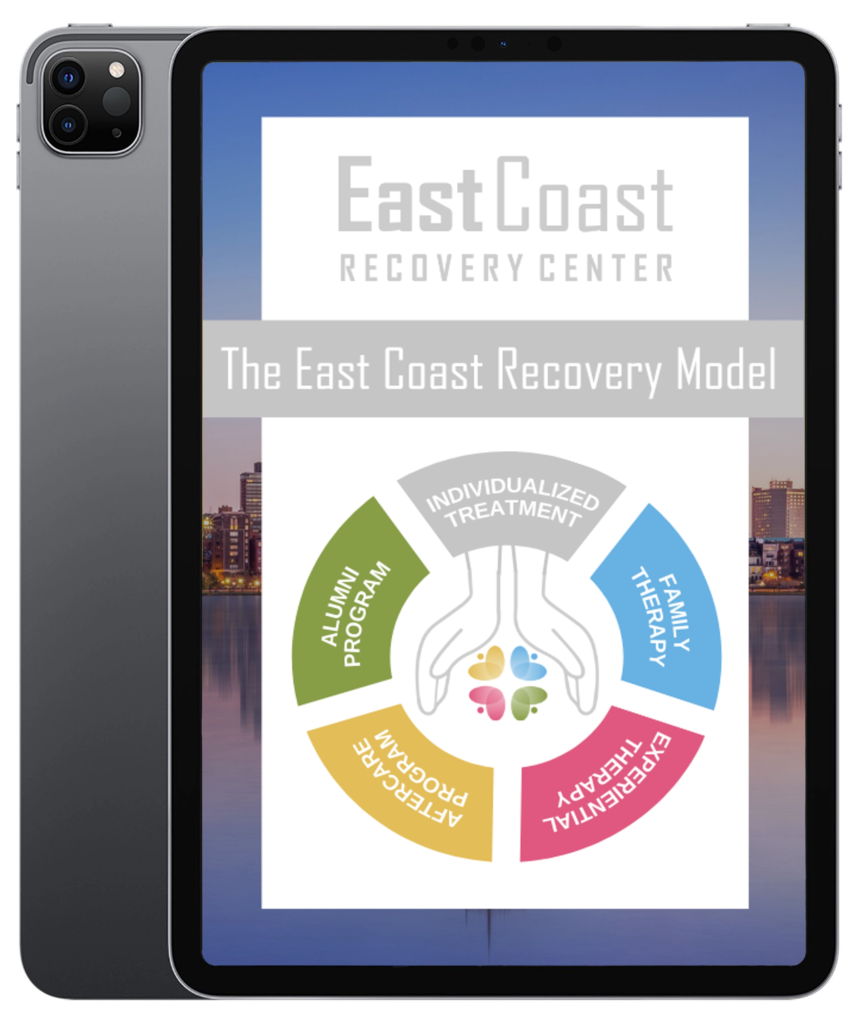We all have a perception of what a person addicted to meth may look or act like, but unfortunately, a lot of these thoughts and opinions are shaped by resources that may not be concerned with helping those in need. TV shows like Breaking Bad give us a perception of meth that is not going to coincide with 99% of the public’s experience when it comes to methamphetamine.
There are a lot of reasons for this, obviously, but one of the most important is that the number of people struggling with meth addiction in the United States means it’s a much more common problem than TV or movies may present. According to a 2017 survey, nearly two million people in the United States said they had used meth in the previous year.
This means meth use is much more prevalent, and you may be surprised to know whose lives are being impacted by the drug. It also means there is a strong possibility of meth addiction for each of those who are using it regularly, or even for someone who only uses it once. Meth can be incredibly addictive and quickly lead to dependence, which can then lead to addiction.

It’s crucial that anyone who uses Meth seek professional help; attempting to quit drug use without assistance is unlikely to result in a long-term recovery. Recovery for meth addiction typically requires a comprehensive meth treatment plan that consists of detoxification followed by intensive therapeutic treatment and an aftercare plan. The following are treatment programs offered at East Coast Recovery for meth addiction.
PHP is an outpatient program that includes daily participation in a variety of evidence-based therapies, group sessions, classes, and complementary activities such as yoga and art therapy. While in a PHP, clients are able to return to a sober living environment at the end of the clinical day at the rehab center. PHP detox services may also be provided by an associated residential treatment facility or a local detox center. A PHP is often referred to as a day program since therapeutic activities are scheduled every day of the week.
People with minimal opioid addiction or those transitioning from more intensive rehab programs, such as a Partial Hospitalization Program, may benefit from intensive outpatient treatment. These programs consist of a general daytime schedule that includes a variety of therapies and drug tests. Patients may return to their daily responsibilities, such as household chores or employment, or they may live with family or friends in a supportive environment during an IOP.

Download Our FREE East Coast Recovery Model eBook
An aftercare plan provides a framework for supporting a recovering individual through treatment as they pursue their life goals. Aftercare plans include activities, interventions, and resources to help a recovering individual deal with triggers, stress, and cravings post-treatment. Because every individual requires something different, aftercare plans are unique. Because many individuals experience problems when exiting treatment, aftercare plans are critical. Relapse rates are highest in the first few months after a person leaves rehab.
Sobriety can be maintained in a sober living house by using peer support, sobriety-establishing and -maintaining recovery practices, peer empowerment, and individual responsibility. Residents may be prepared for life post-rehab or independent living through peer support, recovery housing, and peer empowerment. Drug addiction and incarceration rates have been shown to drop as a result of communal living. By honing their coping skills, mastering communication, and trusting themselves, individuals can benefit largely from a sober living program.
An addiction treatment center is a great place to find help, but you might be unsure about the average duration of rehab. The length of treatment varies depending on numerous factors, so it is difficult to pinpoint an exact average. We can tell you that the typical duration of treatment is between 30 and 90 days. While detox, therapy, and supportive care are integral parts of a brief treatment program, treating substance use disorders is a complex process that may last for years. Although it may seem beneficial to complete rehab as quickly as possible, research shows that those who stay longer are less likely to relapse.
There are a number of treatment alternatives at rehab facilities, and their costs vary depending on the specific individual’s program. Drug and alcohol treatment is often readily available to all economic ranges thanks to payment plans or alternatives at rehab facilities. After the Affordable Care Act was signed into law in 2010, most insurance providers began covering drug and alcohol treatment in some capacity. Many insurance policies now feature very low co-payments for treatment.
It is possible to verify insurance benefits during a treatment consultation with an accredited rehab facility. Patients may also contact their insurance company directly. Every dollar invested in drug abuse treatment programs yields a return of between $4 and $7 in reduced drug-related crimes, stolen or damaged property, and criminal justice costs, according to the National Institute on Drug Abuse.

Having a better understanding of how the admissions process works can ease your worries and build your confidence as you begin your journey to sobriety. The following are the beginning steps of getting into rehab in Boston:
An addiction treatment facility has personnel ready to answer your call. When you phone an addiction treatment center, an admissions representative will assist you through the rehabilitation process. During this private phone call, you will provide your name, birthdate, address, and occupation. You will also provide information about your substance abuse history, including your primary drug of choice, how long you have been addicted, and how you first used drugs. You may also be required to disclose your mental health history, whether you have any co-existing conditions, and whether you are experiencing any financial or family difficulties.
When you accept treatment at the facility, you will be required to go through a comprehensive intake procedure. To develop a customized treatment program and help you remain sober, your care team may ask you to undergo a variety of lengthy medical and mental health assessments. Delays must be avoided at all costs. The longer it takes a person to make the first phone call, be screened, and receive treatment, the less likely he or she will follow through with the program.
Methamphetamine, which is usually shortened to meth, is a man-made stimulant that interacts with, and alters, the responses within the central nervous system. Like other stimulants, when it is consumed the results tend to be higher levels of energy, an increased awareness/alertness, higher heart rate, potentially rapid breathing, and occasionally the loss of appetite. Someone who has used meth may find it increasingly difficult to sleep or relax in any way.
Some of the ingredients that can be used to make meth showcase exactly why it is so destructive to the human body.
brake fluid
brake cleaner
iodine crystals
lithium metal
lighter fluid
drain cleaners
ethyl ether
anhydrous ammonia
sodium metal
pseudoephedrine
red phosphorus
By themselves, nearly all of these are dangerous substances that should never be ingested. When combined they become much more toxic and dangerous and can cause incredible amounts of damage to the lungs, skin, eyes, and teeth of someone who is using meth. More than that, the materials used in a meth lab can become and remain toxic for a long time and pose a threat to someone who accidentally comes across the site of a meth lab.
Meth is special when it comes to the way it impacts the body. The thing that makes it so special is the ability to rapidly release high levels of dopamine in the reward center of the brain. This reinforces the drug-taking behavior, and it can make those who use it want to repeat their use.
The first time someone uses methamphetamine they will most likely not actually experience the negative consequences of using meth or having a meth addiction. Instead, they will feel very active and have intense euphoria. The feeling of euphoria is what is most often described as being high. These effects can linger as long as 6 to 12 hours.
This feeling of euphoria and its lingering effects are due to the way that meth tends to take over the brain’s natural reward systems and processes.
When we do something that inspires us or makes us feel joy, happiness, or satisfaction, our brains mark the moment through a special type of chemical response. Dopamine is the name of the specific chemical that is responsible for this response. It helps us feel rewarded, motivated, impacts our forming of memories, and affects how we can pay attention. In some cases, dopamine even helps regulate body movements.
It shouldn’t be a surprise then, that dopamine actually plays a huge role in your daily life and natural processes. From the brain chemical to how we are feeling, it is all impacted by dopamine. Low dopamine levels can lead to negative effects on mood, motivation, and memory.
When someone is using meth, their reward cycles fueled by dopamine get taken over, similar to a pirate boarding and taking over a rival ship on the high seas. Once the methamphetamine is acting as captain of the ship, it won’t want to give over control back to the natural processes very easily.
This is common in stimulant-style drugs like meth. In general, meth works by releasing dopamine and norepinephrine. Together, dopamine and norepinephrine act as messengers in the brain, which is how they got the name “neurotransmitter,” and they control a lot of emotions and feelings for us. Since meth takes the normal cycle and turns it on its head, it leads to feelings of euphoria, or feeling “high,” along with potential increases in energy and feelings of invulnerability.
Sometimes those who are using—or have used—meth will describe it as feeling invincible when they are currently experiencing their “high.” Some of this is why there is a phenomenon known as “chasing the dragon” when it comes to using meth. It means that you need to keep using it more and more and doing it more often in order to capture the same high as the very first time you tried it.
This leads to a strengthening of the addiction to meth in the brain. But, that isn’t where the effects of the meth end.

Methamphetamine is considered a very powerful substance because of its massive effects on the body. This also means there are some clear signs to look for when it comes to meth addiction and meth use.
Symptoms of meth addiction can range from minor to life-threatening, so it can be really important to be aware of them all.
One of the first signs that someone may be experiencing an addiction to meth is the sudden loss of interest in areas of life that were once a personal priority. Career goals, hobbies, relationships and so much more of our daily lives can become a secondary priority when it comes to using meth if someone is struggling with addiction.
It is common for those struggling with addiction to meth to try to hide their use, but with continued use, the brain’s reward cycles become altered, and are now actively looking for the effects of meth. This is when signs of meth addiction can become very obvious.
Some of these warning signs and symptoms of methamphetamine addiction may include
Weight loss
Sleep deprivation or insomnia
Dehydration
Rotten teeth, or what is known as “meth mouth”
Elevated body temperatures
Skin abscesses and infections
Meth comes in a lot of different forms, from powder to capsules to liquid. There are also crystallized versions of meth, similar to that from Breaking Bad, that are known as “crystal” or “crystal meth.” Actually, the way that meth is made is part of where the names come from. Some common street names for meth include crystal, crank, and more.
But, whatever form it comes in, methamphetamine can have some really horrible effects on the human body. Some effects are short-lived, while others are long-term and even potentially life-threatening.
Some of these warning signs and symptoms of methamphetamine addiction may include
Of course, that isn’t where the negative outcomes come from using methamphetamine end. There are also a lot of possible side effects from using that someone can experience.
Withdrawal is the natural progression of the meth comedown. The most serious of meth withdrawal symptoms come in the form of psychological and emotional challenges. Of course, there are physical symptoms that accompany the psychological issues, but they aren’t as severe.
Methamphetamine withdrawal is certainly uncomfortable, but it has not been shown to be life-threatening, unlike other drugs, including alcohol. One of the more severe withdrawal symptoms that can occur is the increased potential for self-harm due to depression.
The withdrawal symptoms won’t be the same for everyone, and all of them may not always happen to everyone. These are some of the possible withdrawal symptoms when detoxing from meth:
Itchy eyes
Fatigue/exhaustion
Feeling anxious/agitated
Increased appetite
Inability to sleep
Slurred and/or incoherent speech
Paranoia
Suicidal thoughts
Hallucinations
According to a study by the National Institute of Health, meth withdrawal seems to adhere to a consistent timeline, allowing clinicians to form a plan to effectively treat withdrawal symptoms. According to this study, the timeline for meth withdrawal is typically as follows:
Symptoms begin to show within 24 hours of abstaining from the drug.
The peak of withdrawal symptoms begins to occur within 7 to 10 days of discontinuing the drug, with the severity of symptoms steadily declining after they peak.
Meth withdrawal has an average duration of 14 to 20 days, with 14 days being the most commonly reported length of withdrawal symptoms.
While there is a general timeline of symptoms that a person detoxing from meth can expect to experience, they can vary from person-to-person depending on a variety of different factors. Some of these factors include:
Everybody metabolizes substances differently and at different rates. This is no different when it comes to metabolizing meth. Personal factors such as height, weight, and length of meth use can affect metabolism.
A highly chaotic or unstable home environment can make the withdrawal process much more difficult. High levels of support and encouragement can help the individual manage and minimize withdrawal symptoms.
The method in which a person regularly uses crystal meth can influence their withdrawal experience. The effects of crystal meth don’t last as long when it is smoked or injected, leading to individuals using an increased amount of the drug. This increased amount can be associated with more intense withdrawal symptoms.
Individuals in recovery from meth addiction may seek out addiction support groups, as they are able to connect with other individuals facing similar obstacles in their lives. Here is a list of addiction recovery support groups in and around Boston, Massachusetts:
10:00 AM
Morning Break
155 Humboldt Ave, Dorchester, MA
12:00 PM
Noontime Everyday (Online only)
Online only
7:30 PM
Miracle On The Mile
Barbara McInnis House
780 Albany Street, Boston, MA,
10:00 AM
Morning Break
155 Humboldt Ave, Dorchester, MA
12:00 PM
Noontime Everyday (Online only)
Online only
7:30 PM
Clean & Proud
Fenway Neighborhood / K-Street Facility
69A Kilmarnock Street, Boston, MA
10:00 AM
Staying Clean In the Quarantine (Online only)
Online only
Boston, MA
6:30 PM
We Never Have To Use Again
6 Southbourne Rec Room
6 Southbourne Rd. Jamaica Plain, MA
7:00 PM
Our Primary Purpose (Online only)
Online
Boston, MA
10:00 AM
Morning Break
155 Humboldt Ave, Dorchester, MA
12:00 PM
Noontime Everyday (Online only)
Online only
7:00 PM
Text Message
4th Presbyterian Church
340 Dorchester Street, South Boston, MA
10:00 AM
Morning Break
155 Humboldt Ave, Dorchester, MA
6:00 PM
Paycheck
Marcus Garvey Center
116 Roxbury Street, Roxbury, MA
7:00 PM
Never Alone
YWCA
7 Temple Street, Cambridge, MA
10:00 AM
Morning Break
155 Humboldt Ave, Dorchester, MA
7:00 PM
How It Works
Fourth Presbyterian Church
340 Dorchester Street, Boston, MA
10:00 AM
Morning Break
155 Humboldt Ave, Dorchester, MA
6:30 PM
End Of The Line
Forest Hills Covenant Church
50 Morton Street, Jamaica Plain, MA
7:00 PM
Serenity By The Sea
Saint John's Parish Hall
222 Bowdoin Street, Winthrop, MA









